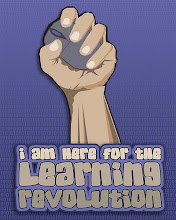
I suppose there could be numerous interpretations for this particular Rockwell painting, but personally, I can't help connect its meaning to Issue #2- should the curriculum be standardized for all? As I study this painting, I wonder why the lady is projecting a positive aura while the child is clearly feeling differently about his so-called 'spirit of education'. For a larger viewing of the picture (sorry, I couldn't get one embedded in the blog) click on the painting.
I'm not exactly sure who the lady in the paining is. Perhaps the child's mother? His teacher? Or maybe a symbolic representation of the government, which does its best to glorify education? She embodies Morimer Adler's philosophy that contends "democracy is best served by a public school system that establishes uniform curricular objectives for all students" (Noll, 2009, p. 16). This lady knows exactly what the boy is being sent to learn; the essentials of basic schooling, with little or no regard for his personal desires and interests. She's content knowing "It is in school that we meet, become used to, and learn to believe in the totally controlled society (of education)" (Holt, 1974, p. 29). The sickness of the modern world, and the discrepancies this painting portrays, is that education is beyond a standardized curriculum. Clearly, the young boy's spirit is being jeopardized. By examining the painting's title, "The Spirit of Education", and then contrasting the child's disgruntled persona with the female figure's smiling face, we can differentiate between the two. The boy is unhappy with his education; what worked for the lady in the picture or what the government thinks should work for our nation's children, clearly is not! A standardized curriculum for all creates a nation where our children have no voice. I don't believe Holt has all the answers, but he does provide the freedoms and the fundamental rights for students to learn as opposed to being educated.


No comments:
Post a Comment